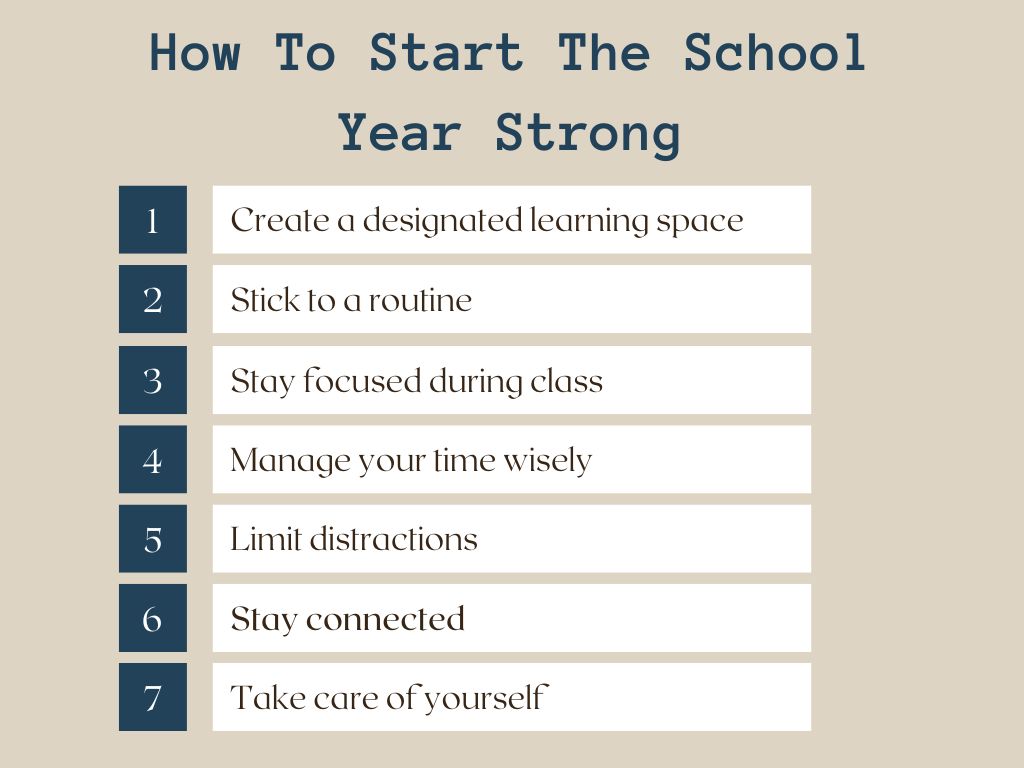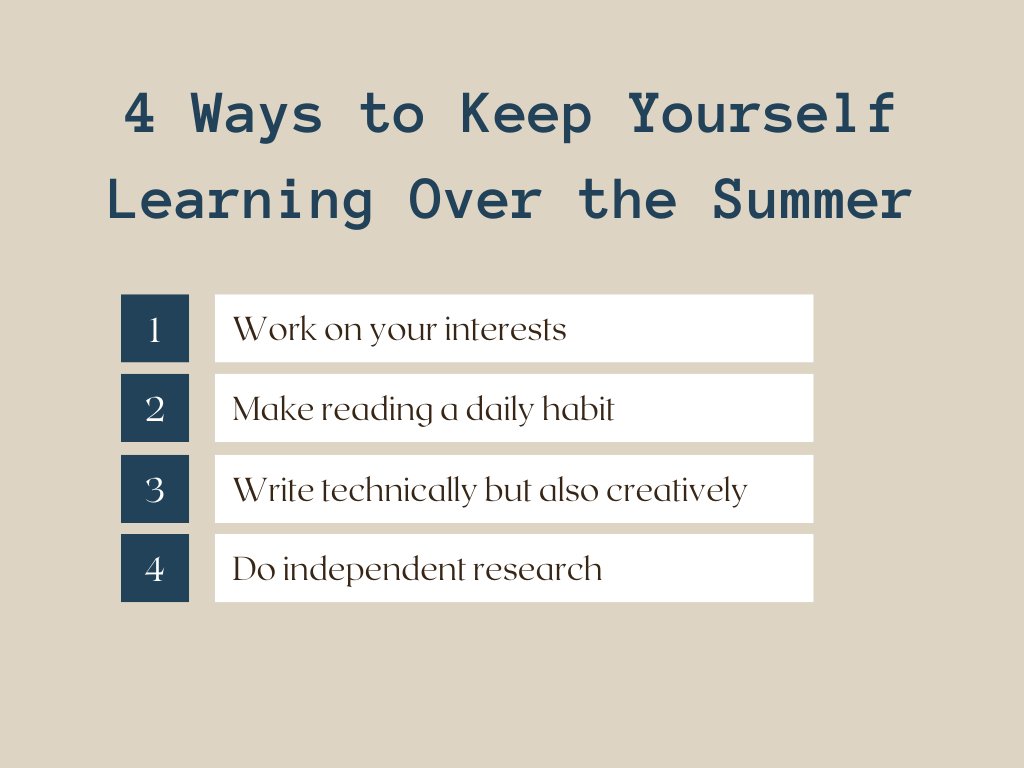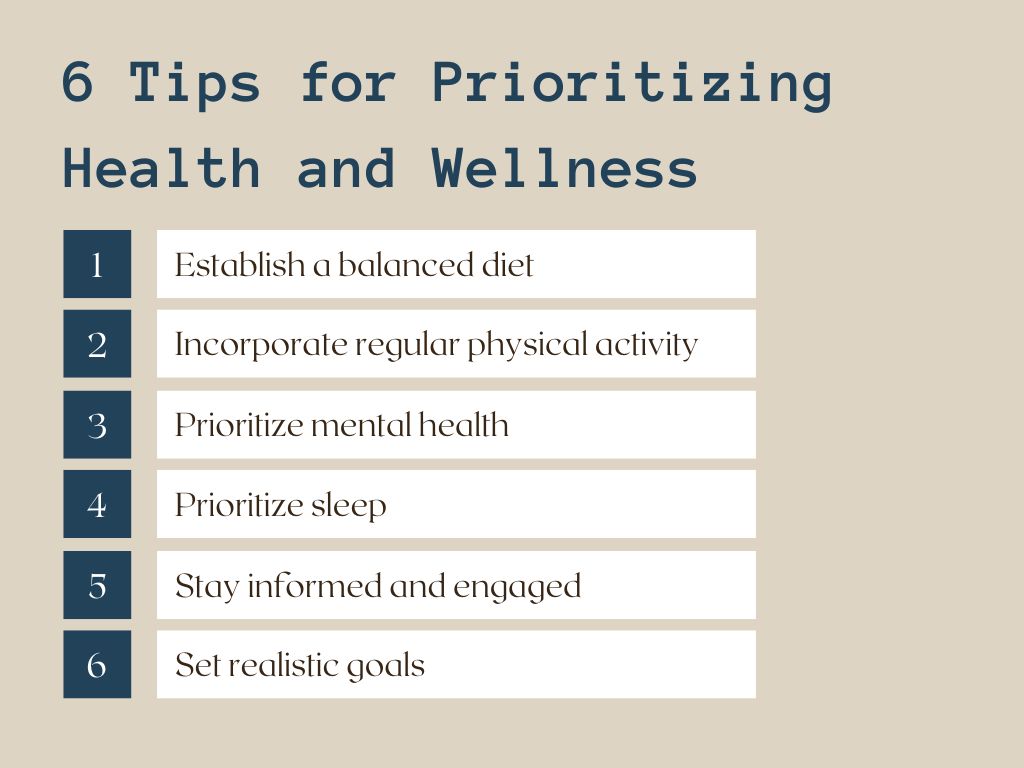Where to begin?
Ah, yes. It’s that time of year again. The snow is melting, the flowers are blooming, and the existential dread of AP exams have begun to set in. And, if you’re a junior like me, the mythic understanding that you basically have only one year left of high school has fully set in. Yup, it’s that time of year again, and I’m referring to spring. And, with the looming face of the unknown, we often seek comfort in what we know best. But sometimes, we trade what we know best for what’s easy. And this isn’t a bad thing on its own. It’s important to take breaks from your work. It does become a problem, however, when you’re taking so many breaks from your work that you start taking work from your breaks. I, of course, am referring to our good ol’ friend procrastination. And, the scariest thing about it is that we don’t even have to face the unknown for it to get a hold of us. So, without further ado, let’s get started. No dilly dallying now.
Of course, it’s important to remember that everyone has their own distinct system and flow for working towards their goals. It’s an inherent truth tied to the fact that they’re your goals, after all. We all make tweaks and modifications to “the plan” which are unique to the lessons we’ve learned. It’s one of the major steps towards independence that comes with the high school journey, and it’s unique to each and every person. While I won’t be able to figure out this system for you, I can try to help arm and prepare you for this journey. We’ve walked similar paths before, after all. I can’t help you figure it out for yourself, but I can help a bit with the process.
More often than not, when we hear the word “procrastination”, our minds wander to the “I-still-have-two-days-before-the-deadline-I-can-spare-one-more-episode-of-Baby-Yoda’s-space-adventures” variety. And, while this is the most well-known definition, procrastination comes in many shapes and forms. Every person is unique, and thus grapples with their own unique set problems. And while procrastination may be a common denominator shared between multiple people, the reasons for their procrastination aren’t always the same. The vicious beast (or warm, inviting bed?) known as procrastination comes in many forms. And before you begin to face off against this fearsome (fluffy?) creature, you must arm yourself with the most powerful weapon of all: knowledge.
Sometimes we procrastinate out of fear of the task ahead. We’ll want to complete something to the best of our abilities but put it off, worrying that our “best” isn’t good enough. I know that’s happened to me in the past. Sometimes, we procrastinate because we have so many other things on our plate that we don’t want to deal with the stress of tackling the entree. In the words of Mark Twain, “if you have to eat a live frog, do it first thing in the morning and nothing worse will happen to you for the rest of the day.” In my experience, everyone has had at least some experience in each department. And while the methods to combat them may vary, I have learned that there are three inherent truths towards working in the right direction. And so, as we begin to face off against this fearsome (inviting?) creature, we must be prepared.
Clichéd, I know, but it stands true, nevertheless.
The first, and most crucial tip, is honesty. You have to be honest with yourself because it’s impossible to fix a problem you don’t believe you have. Otherwise, is it truly a “problem”? And, speaking from personal experience here, it isn’t always easy to do that. That’s obvious, I’m sure, but bear with me. After all, who wants to admit that their problems and consequences are a result of their own actions? If you go searching for a scapegoat, you’ll eventually find one, but in the end, this doesn’t solve the problem. At the best, all it can do is delay the inevitable. At its worst? We begin to blur the lines between what’s important and what’s not, scarring our own vision and outlook. This is what makes honesty, as cheesy as it may sound, such an important factor. Acknowledgment is often the forerunner to change. Only by first understanding our weaknesses can we begin to truly grow. And, as time goes on, we begin to understand the reasoning behind these actions and are better able to take the necessary precautions needed to prevent them. Eventually, we bypass this altogether and spend our energy and time towards new, better habits. All we have to do is listen to that voice we all have.
This leads to the second tip: practice. The concept of being able to “learn” something is often overlooked. Us as humans have the unique ability to realize intricate relations between cause and effect in our own actions and habits, and then alter them to achieve a desired result. This goes beyond one being hungry and then finding food, but expands into us being a united species, one of empathy. We can see how our actions benefit or hurt others not just physically, but emotionally, and then instantaneously shift our entire outlook on life to put ourselves in the shoes of that person. The inherent truth is that we have the power to break away from years of repetition to build a better future for ourselves and others. Again, speaking from personal experience, it’ll first feel as if everything in this world is trying to drag you back towards where you were. It’s like when you finally decide to start exercising, and then out of nowhere, your mom comes home from the grocery store with those muffins you like. I know that’s how it feels for me whenever I try to break bad habits, but I can’t do anything but accept that those things will always be there. There will always be another muffin in the pantry. Over time, things get easier. Realization that “this is actually happening!” sets in. Then, they get a little bit harder as you try to overcome what’s left of your old habits. That final stretch before your actions are cemented into a habit, similar to that third week of the new year when all hope seems lost. But, after this uphill battle, we’re home free. It’s a lot easier to maintain control of the hill than climb up it. But that’s not because it is easier, but instead that we’ve taught ourselves to make it easier. Perspectives are an interesting thing, aren’t they?
The final important tip I have when it comes to combating procrastination is support. Every fight feels better when there’s someone in your corner rooting for you. Oftentimes, having someone to believe in you gives you a reason to continue to believe in yourself. Afterall, we can be our own worst enemy. We often know ourselves better than anyone else in this world, but having a Mickey Goldmill to our Rocky Balboa (or Rocky Balboa to our Adonis Creed for you youngins) gives us the ability to push past our doubts. But be wary, as this isn’t a task that should go to anyone. It requires trust. That person who believes and sees something in you even when you don’t see it in yourself. The beautiful thing about it is that this person can be almost anyone, not just a friend or someone in your age group. Real friends and family
Overall, trying to stop procrastinating, like trying to break any bad habit, is an intimidating task. It’s not necessarily difficult, but when the going gets tough, we often make that “tough” a little bit tougher by feeding it our insecurities and doubts, and that’s what really gives the muffins power over us. We just have to be honest with it, save the muffin for later, and rely on our support system. It may take time, and a muffin-tin of willpower, but it’ll be worth it. Trust me when I say this: the hardest thing will be getting started. That’s procrastination, after all. But after that? It’s smooth sailing from there.



